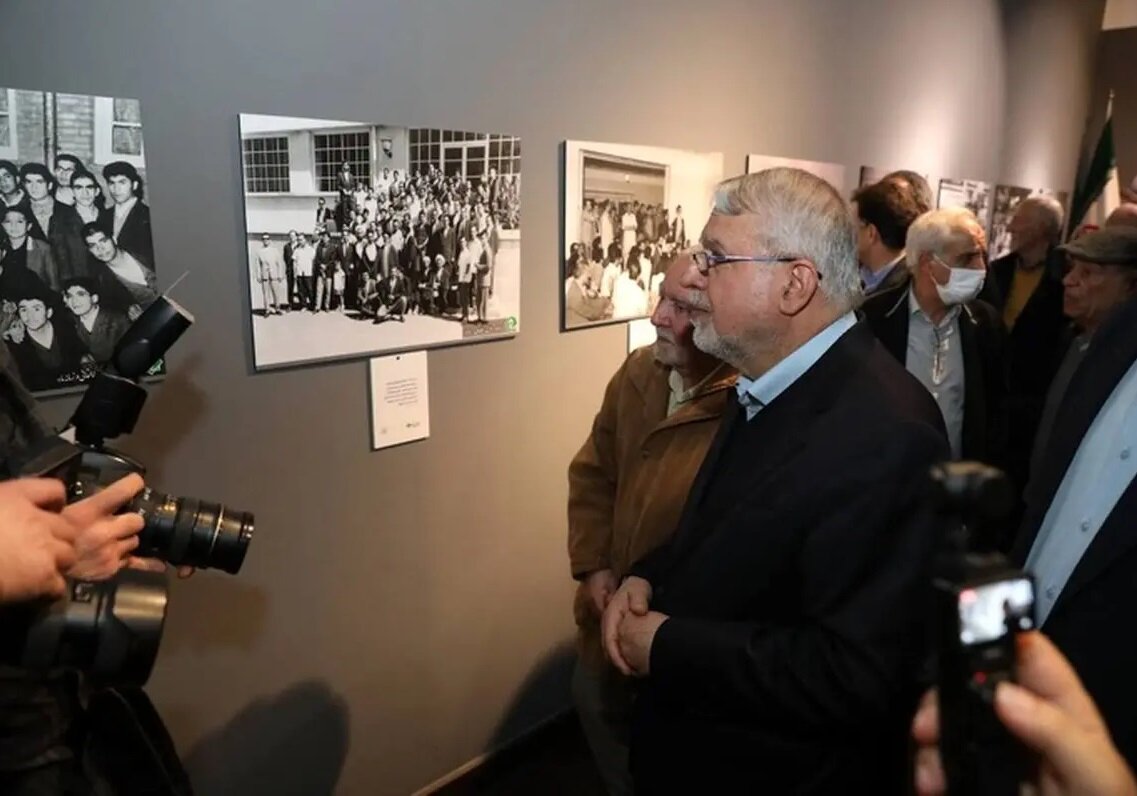Late Ayatollah Taleqani’s house registration plate unveiled at Tehran ceremony

TEHRAN - In a ceremony held on Tuesday evening, the registration plate for the late Ayatollah Mahmoud Taleqani’s historic house was officially unveiled, marking its inclusion on Iran’s national cultural heritage list.
The event, hosted at the National Museum of Iran, also inaugurated a special exhibition featuring rarely-seen photographs of Ayatollah Taleqani.
The event was attended by Seyyed Reza Salehi-Amiri, Minister of Cultural Heritage, Tourism, and Handicrafts, along with officials, historians, researchers, and members of Taleqani’s family.
The exhibition, which showcases 50 rare photographs from various stages of Ayatollah Taleqani’s life, will remain open to the public until January 19.
Speaking at the ceremony, Salehi-Amiri highlighted the significance of preserving the memory of influential figures like Taleqani. “This is neither a political nor a promotional gathering but an effort to introduce the younger generation to great personalities of our nation,” he stated, emphasizing the importance of bridging generational gaps in understanding Iran’s cultural heritage.
Salehi-Amiri described Taleqani’s house as more than a historical structure, calling it a "narrator of events" that holds spiritual and cultural significance.The minister described Taleqani’s house as more than a historical structure, calling it a "narrator of events" that holds spiritual and cultural significance. “This house is a part of Tehran’s identity and has witnessed pivotal moments in history,” the minister added.
Prominent historian and researcher Mohammad-Mehdi Jafari also addressed the gathering, stressing the duty to safeguard such invaluable heritage. “Taleqani’s house was a sanctuary for the people during the Shah’s era [before the victory of the 1979 Islamic Revolution]. It stands as a material symbol of his legacy and a testament to his role in uniting people,” Jafari remarked.
He further highlighted the importance of preserving Taleqani’s personal library, which contains books and documents of historical value. Jafari urged the ministry to assist in returning any removed materials to the library so they can be accessible to scholars and the public.
Cultural heritage expert Eskandar Mokhtari also reflected on Taleqani’s enduring impact. “There is a street named after Taleqani in every city I have traveled to so far.”
“His house is not only architecturally significant but also a site of monumental historical events that brought people together under his leadership,” Mokhtari stated.
Ayatollah Mahmoud Taleqani, a revered theologian, reformer, and advocate for democracy, played a significant role in the movement against Mohammad Reza Pahlavi, the last Shah of Iran.
According to organizers, the preservation of his residence and the exhibition of his photographs aim to honor his legacy and inspire future generations.
AM
